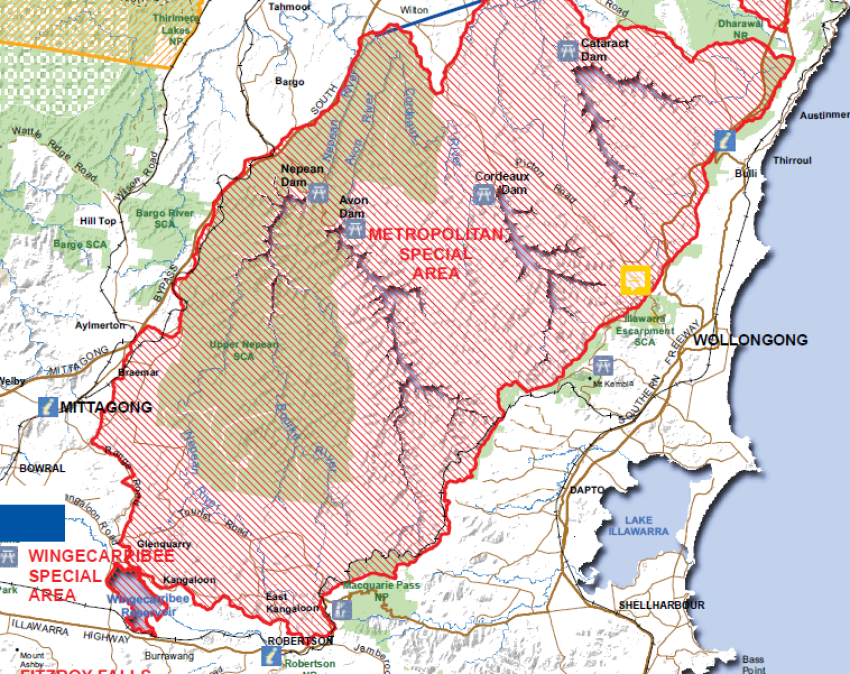
The New South Wales Independent Planning Commission (IPC) decided on February 5 to not approve an application by South32 to extend its Dendrobium coal mine under Sydney’s main water catchment.
This is despite the NSW Department of Planning, Industry and Environment supporting the mine’s expansion.
The IPC said that the risk posed by the mine “had not been properly quantified and based on the potential for long term and irreversible impacts – particularly on the integrity of a vital drinking water source for the Macarther and Illawarra regions, the Wollondilly Shire and Metropolitan Sydney – it is not in the public interest”.
NSW Deputy Premier John Barilaro was furious. He said the IPC’s decision was a “disaster” and again committed to overturning the IPC’s ability to override government decisions.
South32 had sought approval to extract an additional 78 million tonnes of metallurgical coal until 2048.
The mine is located on the Upper Nepean sub-catchment, a part of the Special Areas zone of the Greater Sydney Water Catchment. Longwall mining began in April 2005 and has continued 24 hours a day, seven days a week.
South32 wants to extend its mine into two new areas — adjacent to Avon and Cordeaux Dams — thereby extending the mine’s life until 2048 and extracting an additional 78 million tonnes of coal.
There is strong opposition to the mine’s expansion, including from local and state environment groups, Water NSW, the Independent Advisory Panel on Underground Mining (IAPUM) and climate scientist Tim Flannery. Many gave evidence at the IPC public hearings in December.
Water NSW opposes the mine’s expansion because of the expected damage to water quality and quantity. It said 25 swamps would be affected by the diversion of water caused by subsidence and cracking.
It told the IPC that the mine’s owners had “continually underestimated” the fracturing of streams over the mine’s history. It said: “The project would cause significant environmental impacts in various significant watercourses, including nine major streams” and that the proposed mine design “would fundamentally change the hydrological and ecological functions” of the upland swamps.
“WaterNSW considers that it is possible that surface water losses could be up to double those that have been assessed [by South32 and are] in the order of 6–7 gigalitres a year.”
Peter Turner, a mining projects officer with the National Parks Association, said it was “astounding” the department approved this “brazenly reckless and greed-driven proposal”, despite knowing water losses would likely be permanent.
“Planning has recommended approval less than a year after falling reservoir levels triggered fast-track planning for expansion of the [Sydney] desalination plant,” Turner told the January 10 Sydney Morning Herald.
The company’s determination to proceed with the controversial longwall mining runs counter to advice by the predecessor to the IPC, the NSW Planning Assessment Commission. In 2016, it warned against Wollongong Coal’s longwall mine at the nearby Russell Vale mine due to the risk of subsidence.
Wollongong Coal has since said it would not use longwall mining inside the catchment.
Independent experts say that South32’s measures to protect the special areas of the water catchment are grossly inadequate.
IAPUM found that: surface water that should be reaching dams is instead flowing into longwall mines; existing mines are estimated to be losing 8 million litres of water each day that would otherwise flow to Sydney’s water supply systems; longwall mining can lead to drainage of swamps which is likely to be irreversible; and there has still been no assessment of the long-term cumulative impacts of mining on water quantity and quality in the Greater Sydney Water Catchment.
A recent transcript of a meeting between IAPUM representatives and the IPC shows the former was scathing of South32’s unwillingness to share important information about its mine extension.
IAPUM representatives also criticised the short timeframe given for the expansion to be properly analysed. The pandemic restrictions prevented a full environmental risk assessment to be done.
Lock the Gate Alliance spokesperson Nic Clyde said it was unacceptable for a coal mine expansion to be responsible for the loss of so much drinking water.
“An independent umpire like the IPC must surely realise that this is not in the interests of the wider population, or the fragile swamps that sit above the Dendrobium mine. So much damage has already been done to these precious and unique environmental areas.”
Protect Our Water Alliance spokesperson Rada Germanos said South32’s application means that there will be longwall mining 300 metres from Avon Reservoir and less than 700 metres from Cordeaux Reservoir. She said the cracks and subsidence will not only badly impact the water catchment, it can “cause problems for built infrastructure like dams, roads and buildings”.
Illawarra Residents for Responsible Mining spokesperson Deidre Stuart warned that most of the coal mined from the Dendrobium expansion is slated for export. These markets are likely to dry up, she said, because other countries have set ambitious climate targets.
Global prices for thermal and metallurgical coal are also “volatile”, Stuart said, which means that mining jobs are becoming more insecure.
“We are seeing more and more workers being put onto short term contracts, and an erosion of pay and conditions. Mine expansions aren’t the solution to this problem,” Stuart concluded.
[This article was updated on February 5 after the IPC decision was announced.]